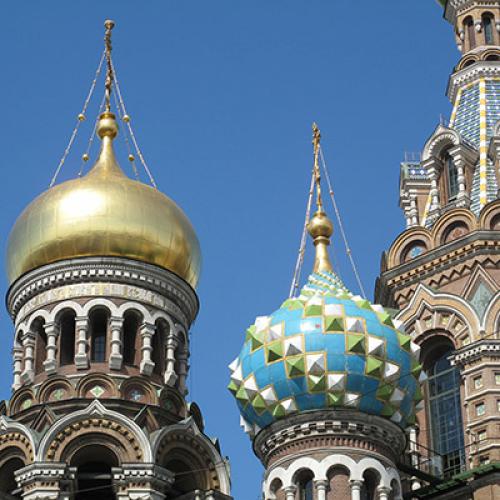The Biden Administration appears on the cusp of sending American troops to NATO allies in the Baltics and Eastern Europe as tensions mount with Russia over concerns Moscow is planning to invade Ukraine.
Sarah Kreps, John L. Wetherill Professor and chair of government in the College of Arts & Sciences, focuses her research on the intersection of international politics, technology and national security. Kreps says the deployment would continue the tit-for-tat escalation seen by both sides.
“All of these developments are worrisome not least because both of the major actors – the U.S. and Russia – are nuclear-armed, but that's also why both sides are likely to tread cautiously. Neither side has any incentive for serious escalation because neither side would win," says Kreps.
“Russia is unlikely to conduct a full-scale invasion of Ukraine, deterred both by the prospect of escalation with a nuclear-armed country like the U.S. but also because it would mean trying to govern a territory of people who are hostile to their rule. This could mean some form of counterinsurgency they would have to contend with, likely supported by U.S. resources.
“Instead, both sides will likely continue to rattle sabers and probably engage in behind-the-scenes offensive cyber activity. The key in the ongoing diplomatic negotiations will be to give both sides a way to de-escalate while saving face, which would mean both sides suggesting that they had made concessions to resolve the crisis peacefully,” Kreps says.
Cristina Florea, assistant professor of history, studies Central and Eastern Europe. She says Ukraine has been the site of disputes for centuries between different imperial powers with NATO and a post-Soviet Russia the latest to seek influence in the region.
“Eastern Europe and Ukraine, in particular, have a long, complicated history of multiple sovereignties and overlapping imperial projects – a history of which the present moment is a continuation. Recently, Russian president Vladimir Putin wrote a historical piece denying that there was ever such a thing as a distinct Ukrainian national identity given the two countries’ intertwined histories going back to the Middle Ages and Kyivan Rus’. Ukrainian nationalists in turn have overlooked or suppressed aspects of Ukraine’s pre-national history to emphasize its current integrity and distinctiveness," says Florea.
“This is not to say that Russia is justified in violating Ukrainian sovereignty, but to underscore the importance of understanding the region’s multilayered past precisely so we do not fall prey to simplistic arguments about where it should or should not belong.”
Florea adds that "With Ukraine for centuries the site of disputes between different imperial powers including the Habsburg, Russian, and Ottoman Empires, later Germany and the Soviet Union, and now NATO and a post-Soviet Russia seeking to reclaim its influence over the region, the awareness of living at the margins of multiple worlds, with one foot in the West and the other in the East, has left Ukrainians (and East Europeans more generally) with a sense of frustration and anxiety about being left behind. We see these frustrations today in the exasperation of East Europeans with the EU and America’s reluctance to fully commit to supporting their sovereignty and protecting them from Russia.
"From their peripheral position, East Europeans have also historically had a special vantage point into world-historical changes that people located closer to the centers of power could not yet see. Today too they may be again in the front seats of major geopolitical shifts," says Florea. "Their perspective is worth minding and should not be dismissed as a 'quarrel in a far away country, between people of whom we know nothing,' as Prime Minister Neville Chamberlain once said about the impending German invasion of Czechoslovakia."
For media inquiries, contact Becka Bowyer, (607) 220-4185, rpb224@cornell.edu.




